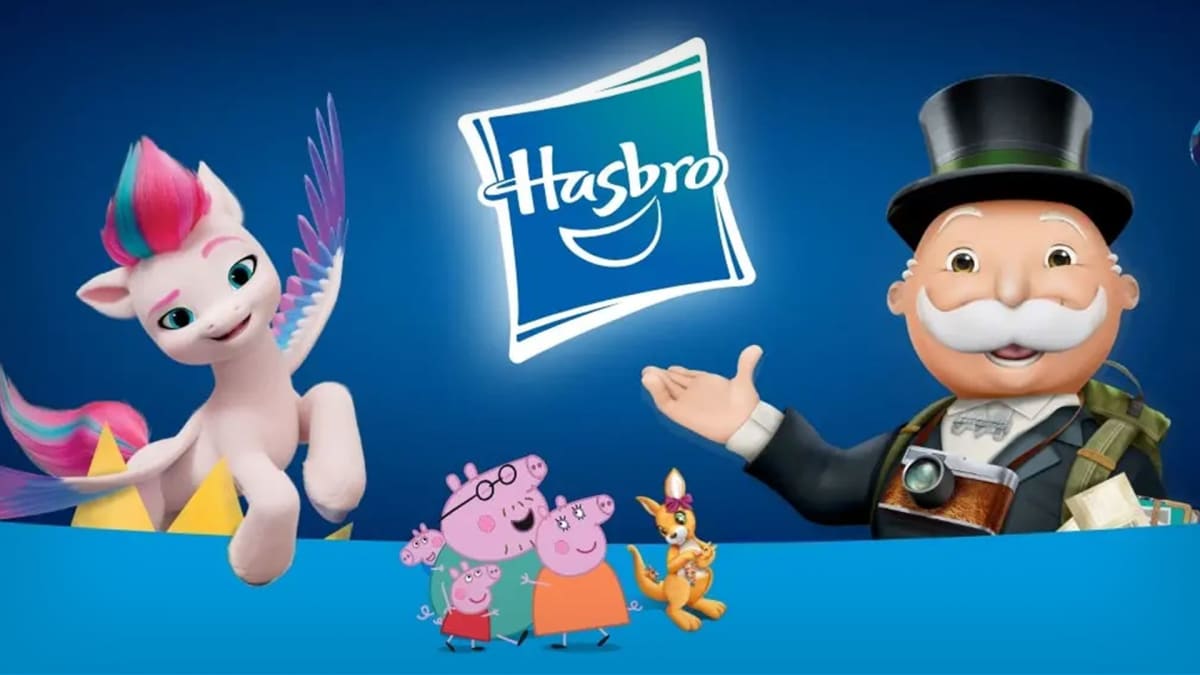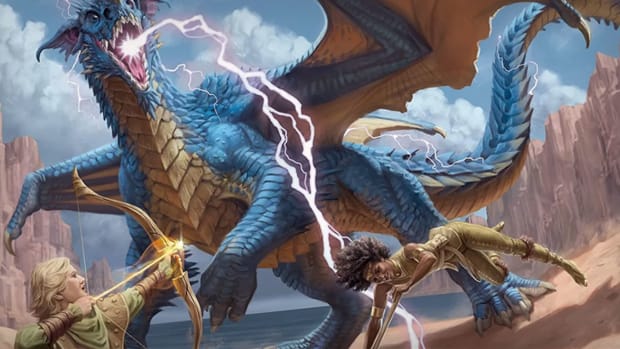
Hasbro-owned game company Wizards of the Coast has seen an incredible bump in sales year over year thanks to the success of some cult favorite games. Trading card and roleplaying games like “Magic: The Gathering,” “Pokémon,” and the fantasy-themed roleplaying game “Dungeons & Dragons" -- often referred to as D&D -- have had decades of staying power and a loyal, growing fanbase.
Wizards of the Coast (or WotC, for short) came on the scene in the early '90s. The company takes its name from the owner's own personal D&D campaign, so it was a dream come true when it acquired D&D in 1997. Two years later, WotC was acquired by Hasbro for $325 million. Since then, WotC has been bringing in fun-money for its parent company as more players and new generations pick up its intricate roleplaying and trading card games.
Even if you’re not into games, "Dungeons & Dragons" may sound familiar. You may have read stories about the game's boost in popularity when covid19 lockdowns forced friends to find creative ways to stay connected and entertained via Zoom. This fantasy game is also the basis of an upcoming big-budget theatrical release, which will provide plenty of marketing and revenue opportunities for the company. But as the momentum of D&D picks up, Hasbro and WotC are making a major change to the game’s longtime licensing deal--and it could cost the company its followers.

Wizards of the Coast
Original 'Dungeons & Dragons' Lets Players Use Its License Openly
WotC’s original Open Gaming License was created in 2000. The idea was to provide ways for creators could develop their own content using the game's rules and the universe in which it takes place. This allowed players to create, market, and sell their own content without fear or reprisals from WotC. In today’s world, this might sound silly -- why would a company allow anyone to use (and monetize) its intellectual property for free?
Well, there’s a reason D&D has been around for almost half a century. The continuous release of open-license content has kept the game relevant. D&D is well-known as a continuous-play game. The experience is based on adventures and storylines, and a regular outpouring of expansive content kept players engaged. And more than one successful game publishing business has been built on D&D’s open gaming license. From gaming live streams like the multi-million dollar show “CriticalRole” to "Pathfinder", the supplementary game that turned into D&D's biggest competitor, D&D's rulebooks became the largest tentpole of the roleplaying gaming industry.
Update to D&D Gaming License Upsets an Industry
Last week, documents drafted by WotC to update its gaming license were leaked onto the web, causing immediate uproar and panic from players and third-party content creators alike. This comes just a month after WotC CEO Cynthia Williams declared in an investor meeting that the game was under-monetized compared to video games. Creating a false equivalence between the tabletop roleplaying and video games industries aside, it's clear that WotC is looking for new ways to sell more content to players.
After the new gaming license update leaked, third-party publishers confirmed that the new terms were sent to them with contracts attached. The leaked draft caused a major uproar for several reasons. For one, it appeared that the company intended to revoke the terms of the original license. Third-party creators would have to change previously-existing content to remain in compliance. Based on when the original documents were sent out, creators would have nine days until the new deal took effect--meaning just a little over a week to completely overhaul years of published content.
The new document would also restrict the creation of any D&D-licensed materials produced on digital apps, novels, videos, or video games, leaving creators to limit themselves to printable game materials. What’s more, any products created under the new license will be required to report earnings to WotC. Any company that makes more than $750,000 in revenue, including crowdfunded materials, will owe WotC 25% in royalties. Crowdfunding platform Kickstarter has said they’ve negotiated that royalty percentage to 20% for its users.
And finally, and potentially worst of all, the company's new license would give WotC a "nonexclusive, perpetual, irrevocable, worldwide, sub-licensable, royalty-free license" to use any content created under the new license policy. Even if the content's creator owns the actual copyright.
Creators and Players Respond Negatively to New Rules
If this Hasbro subsidiary has achieved anything this week, it's uniting its entire player base under a single cause: to restore the game's original open gaming license. As the week went on, a lack of response from Hasbro and Wizards of the Coast only fueled the unease and anger. Third-party publishers banded together to create a petition called #OpenD&D. Publishers who rely on the game's rules for their own game systems (who now compete with D&D for players' attention) released statements about the devastating effects this new rule system would have on the industry.
Meanwhile, players decided to let their opinion of the new licensing policy be known in the best way a company can understand--with their wallets. D&D's major digital subscription service D&D Beyond saw players canceling subscriptions en masse--enough to allegedly cause the website to crash.
Third-party creators have also banded together to create their own truly open gaming license--a series of its own rules and functions that will be “open, perpetual, and irrevocable.” While Wizards of the Coast struggled to put together a statement that could quell the ire of its audience, the company's main competitors banded together to fill a need in the industry that D&D was hoping to cement shut.
WotC Responds to Controversy, Creator Concerns Still in Question
Nearly a week later, WotC issued a response to the uproar. The new gaming license has yet to be released, but WotC did clarify a few points. Content already released under the original gaming license will be unaffected, and that creators will still maintain the rights to the content they create. These clarifications are well and good, but there’s still a lot of room for fans and creators to feel uneasy.
Even if the company’s newest gaming license accounts for the concerns expressed by its audience and industry contacts, the whole debacle has left a bad taste in consumers’ mouths. Competitive companies have already started to pivot, likely taking their audiences with them. In trying to secure a place at the gaming industry’s top, Hasbro and Wizards of the Coast may have turned D&D into D&Done.






